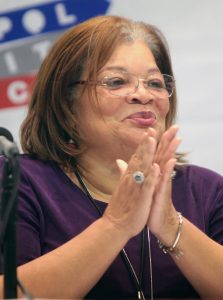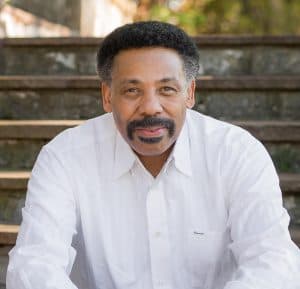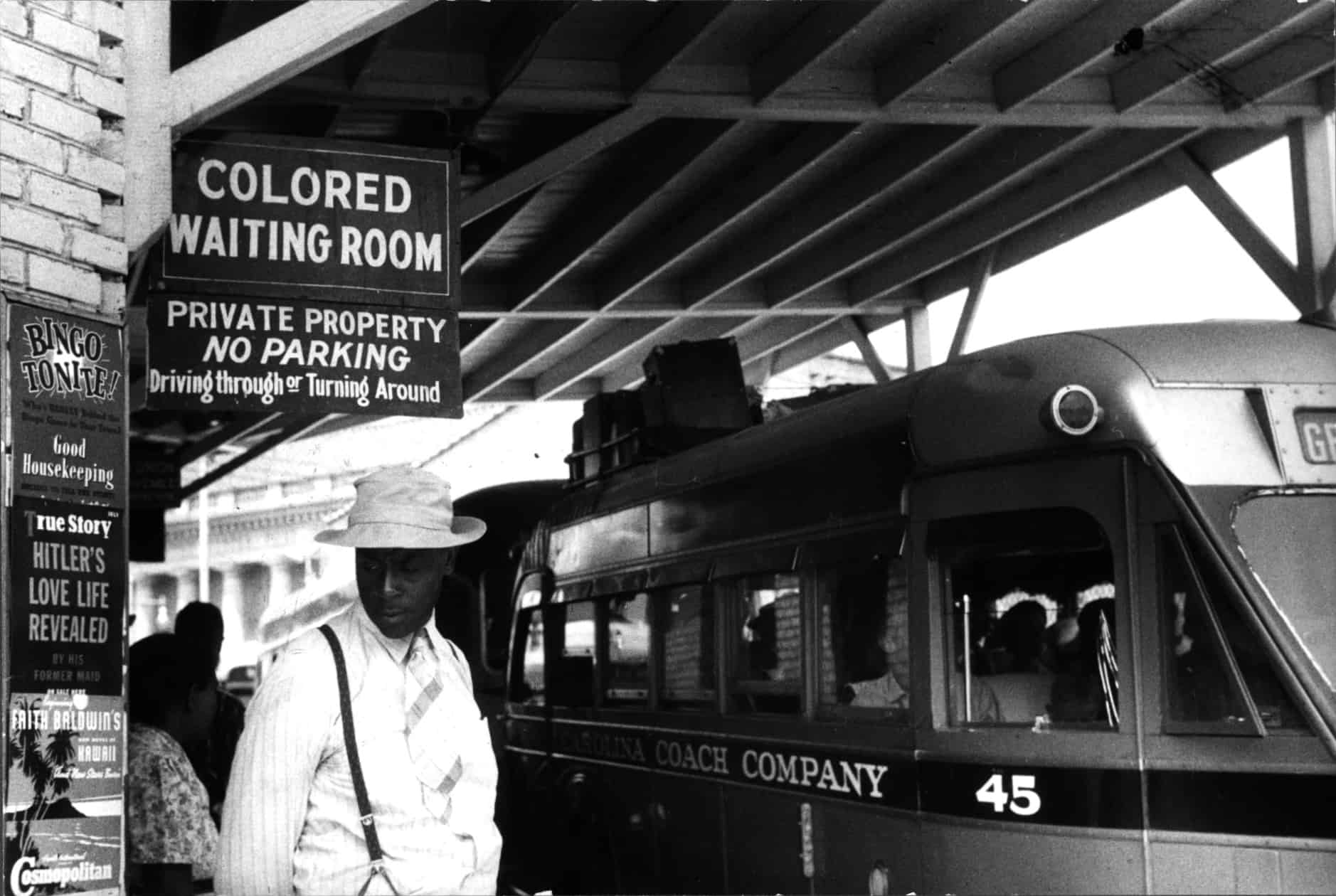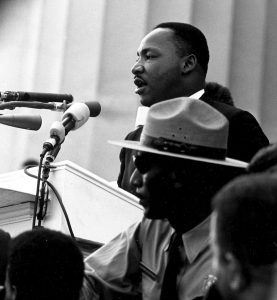[G]ay marriage is simply not on par with the black civil rights struggle. Not even close.…I have gay friends who are married. The states in which they reside might not recognize their unions, but their friends and families do, and they generally live their lives in peace. No one is turning water hoses on them. They are not being attacked by police dogs. There is no Bull Connor or Ku Klux Klan. They are not being lynched en masse, drinking at separate fountains, or being ordered to the back of the bus. This is not to say that gay Americans who wish to have the full benefits of marriage afforded to heterosexual couples don’t face adversity. That’s a major part of the current debate. But it is to say that any hardship they face can’t compare to what black Americans faced 50 or 150 years ago.
—Jack Hunter in 2013, who at that time personally favored same-sex marriage but believed it should be left to the states—
I resent having my race compared to what other people do in bed.
—Janet Boynes (brief bio here), an African-American and author of Called Out: A Former Lesbian’s Discovery of Freedom
Key point: Homosexuals have not always been treated with the dignity and respect they deserve as human beings, but they cannot legitimately compare their quest for gay rights and same-sex marriage to the civil rights movement; nor can they draw any substantive parallels between their quest for recognition of same-sex marriage and the effort to end interracial marriage in the US.
Go here for summaries of all the articles in this series.
Recently we have been exposing numerous myths that led to same-sex marriage in the United States. Keep in mind that a myth is a false idea that is widely accepted as true. In this post, we add two more myths to our list.
A myth is a false idea that is widely accepted as true.
Myth #10: The denial of marriage to same-sex couples is akin to the denial of civil rights to blacks during the Jim Crow era.
Fact: The civil rights movement sought genuine equality for blacks in the post-slavery, Jim Crow era. By contrast, the “equality” sought by advocates of same-sex “marriage” for gays is not true equality, but a manipulation of society’s most foundational institution to create advantages for a small fraction of society. This has occurred at an exceedingly high cost, however unintended, to society as a whole.
Some background information on Jim Crow laws is in order. Southern Democrats were largely responsible for them. As we noted in a previous post,
Racist Democrats in the South after the Civil War no longer had the institution of slavery to bring blacks down, so they found other ways. “Jim Crow laws” were widely used for this purpose. Jim Crow was a character created by Thomas “Daddy” Rice. In the 1830s, Rice wrote and performed for audiences in blackface and spoke in a black dialect. The name Jim Crow caught on, and by the late 1830s it had become a negative term people used to refer to a black man. We’ve noted that during Reconstruction (a period lasting from 1855-1877), federal laws were passed that afforded certain basic civil rights to blacks. However, in
the 1870s, Democrats gradually regained power in the Southern legislatures, having used insurgent paramilitary groups, such as the White League and Red Shirts, to disrupt Republican organizing, run Republican officeholders out of town, and intimidate blacks to suppress their voting. Extensive voter fraud was also used. Gubernatorial elections were close and had been disputed in Louisiana for years, with increasing violence against blacks during campaigns from 1868 onward. In 1877, a national Democratic Party compromise to gain Southern support in the presidential election [an event we highlighted in our ninth point on this list] resulted in the government’s withdrawing the last of the federal troops from the South. White Democrats had regained political power in every Southern state. These Southern, white, Democratic Redeemer governments legislated Jim Crow laws, officially segregating black people from the white population.
Go here and here to read some examples of Jim Crow laws and to learn about the segregation and oppression they engendered. Jim Crow laws were enacted not just during the 19th century in the years following the Civil War, but also well into the 20th century.

These laws routinely put blacks at a disadvantage, as they were denied access to a great many opportunities readily available to whites—even things as simple and benign as the same public restrooms and seats at the lunch counter at Woolworth’s. Moreover, in this environment, racism often prevailed, and it gave way to overt cruelty, even lynchings. Blacks and other fair-minded citizens fought against this social climate, rightly demanding equal treatment for those the Jim Crow laws intentionally targeted.
Numerous Black Leaders Decry a Link Between Gay Rights and Civil Rights

Has the quest for recognition of same-sex marriage been similar to the civil rights movement of the 1960s? Not according to Rev. William Owens, founder and president of the Coalition of African-American Pastors. In an interview at the March for Marriage in Washington, DC in late March of 2013, Pastor Owens, a veteran himself of the civil rights movement, declared,
I marched and many other thousands of people marched in this same location years ago on the claim that we were being discriminated against, and today the other community is trying to say that they are suffering the same thing that we suffered, but I tell you they are not. They are not suffering what we suffered, and I sympathize with people who face discrimination. Every person should be treated with dignity and respect, but what they’re going through does not compare to what we went through.
There is no comparison, and for many years, the African-American family and community have been under assault from all sides – abortion, single family households, poverty and a failing education system.
Changing the definition of marriage to include same-sex couples, Owens added, would be “devastating to all of our families.” He went on to conclude,
Perhaps, you were not old enough to be with me in the civil rights movement in the late 50s or the early 60s, but I’m marching again, and this time I’m marching to defend marriage between a man and a woman.

Alveda King, niece of Dr. Martin Luther King, Jr. and a civil rights leader in her own right, spoke against the ruling that established recognition of same-sex marriage in the United States. Here is an excerpt from an article at WND highlighting King’s concerns.
“Love is not the problem. You can love who you want. It’s the sex that is the problem. Sex is not the same as love. People get that mixed up even in marriage,” King said in an interview with WND. “Sex should be part of that marriage union as that is where children come from. Of course all the models we have today are broken. But that was the design. We have people all confused. How it got mixed up is a long story I can’t go into here. It would take days, but we have a lot of teaching to do on this issue.”…
While still a member of the NAACP, she has said in the past that she believes it’s a mistake to place the LGBT community in the same category with blacks in the civil rights movement and that her uncle would never have approved of doing this.
Clarence Thomas also sees no link between the fight for gay rights and the struggle for equality among blacks:

Thomas—the court’s lone African-American justice, and only the second black jurist to serve in its 226-year history—unleashed a scathing dissent in the Obergefell vs. Hodges same-sex marriage case, rejecting the notion that gays, like African-Americans, had suffered from second-class citizenship. Unlike slaves, he argued, lacking the right to marry didn’t prevent gays from traveling freely across state lines, or subject them to overt discrimination.
At the same time, the justice argued, the 5-4 court majority that made same-sex marriage the law of the land Thursday was misguided in its attempt to grant government the power to bestow “dignity” on gays and lesbians, something they should have already had.
“The government cannot bestow dignity,” he writes, “and it cannot take it away.”
You can read excerpts from Justice Thomas’s dissent here.

Black pastor Tony Evans also has warned against drawing parallels between the quest for same-sex marriage and the civil-rights movement that sought equality for blacks, saying, “The issue of race is not an issue of choice. It’s an issue of birth.”
Is homosexuality a choice? The right answer to that question isn’t a simple yes or no, so we can’t say Dr. Evans is entirely wrong. It is undeniable that various choices are involved in living a homosexual lifestyle. Homosexuality, you see, is inseparably linked to behavior. Race is not. Skin color is irrefutably an innate, immutable characteristic. These differences prevail even when Dr. Evans’ assertion about homosexuality is qualified. In other words, his point remains valid.
Keeping this in mind, let’s cite a quote from civil rights leader Dr. Martin Luther King. A pivotal event in the quest for equal treatment of blacks was the March on Washington that took place on August 28, 1963. On the steps of the Lincoln Memorial, Dr. King gave is immortal “I Have a Dream” speech.
You can read it in its entirety here, and you can watch it here. At the climax of his speech, Dr. King spoke of having a dream, and his dream included this:
I have a dream today.…
I have a dream that my four little children will one day live in a nation where they will not be judged by the color of their skin but by the content of their character.
As we have indicated, skin color is an immutable characteristic over which people have no choice, but homosexuality is linked inseparably to behavior, behavior that is undeniably tied to deep impulses but also rooted in choices made. No one, at least no one with any credibility at all, has ever made the case that it is a sin to be black. Many decent people, however, including people who respect homosexuals’ right to live as they choose, do hold to the belief that engaging in homosexual sex is sinful and wrong, and that it is harmful to the people who engage in it. Accordingly, in good conscience they cannot approve of homosexuality, let alone celebrate it.
Ignoring and Silencing the Opposition—All in the Name of Tolerance
The idea of homosexuality as an alternative lifestyle on par with heterosexuality is relatively new in American life. Anti-sodomy laws were still on the books in a number of states until the Supreme Court ruling in Lawrence v. Texas overturned them in 2003. While militant gay activists will point to this as evidence of unfairness and bigotry, I point to it as evidence of a societal consensus that homosexual activity has harmful consequences. Same-sex marriage, which also came to be recognized in the United States by a court order, was implemented only as recently as 2015 through Obergefell v. Hodges. Furthermore, the Obergefell decision was the climax of a years-long process in which 32 state constitutional amendments limiting marriage to one man and one woman were overturned. Most of these amendments, which were adopted by due process, received overwhelming support at the ballot box. Yet in many court cases, defenders of natural marriage were left without due representation. Not only is this unfair, it is un-American.
The civil rights movement had its share of court rulings, of course; but that movement was broad in its scope, touching consciences and seeking to shape minds and hearts as well as working to enact laws through legislative bodies. Even as early as 2009, concern was raised that the road to same-sex marriage was becoming littered with judicial activism in ways the quest for civil rights for blacks never was.
As we have indicated, many people who could never be described hateful or bigoted still have legitimate objections to homosexuality and same-sex marriage on medical, social, developmental, and moral—and yes, religious—grounds. These individuals respect those who disagree with them but rightly believe they should receive respect as well. It is more than disconcerting that militant homosexual activists, some of the very same people who preached “tolerance,” said “live and let live,” and contended that same-sex marriage would harm no one, rush to accuse those who disagree with them of bigotry and hate. They adamantly demand that Christian bakers and other wedding service providers be forced out of business if they politely refuse to participate in a same-sex wedding, even when these business operators readily and happily serve gay customers in all other contexts.
It is significant that a group of black leaders spoke publicly in support of Jack Phillips, the Colorado baker who in 2012 politely turned down a same-sex couple’s request for a wedding cake (also go here). They sued Jack, and his case is currently before the US Supreme Court.
It is more than disconcerting that militant homosexual activists, some of the very same people who said “live and let live” and who contended that same-sex marriage would harm no one, are quick to accuse those who disagree with them of bigotry and hate.
There’s more. In an excellent piece entitled “Is America Running Out of Patience with LGBT Activism?” social researcher Glenn Stanton paints a vivid picture of militant LGBT advocates’ views.
If you don’t believe that Caitlyn Jenner is a woman, you’re the worst kind of hateful. If you think a child deserves a mother and a father, you are a bigot. If you think a gender-dysphoric boy should not be treated as a girl, you’re evil. If you think a man should use the men’s restroom, regardless of what sex he thinks he is, you are discriminatory. If you think parents’ desire to get their children counseling help for their same-sex attraction is okay, you’re very dangerous. If your church teaches that homosexual sexual activity is wrong, your church is bigoted. You must agree with every part of LGBT values or be slimed. This dictatorial absolutism is not sitting well with many Americans.
Nor should it. Take note! These are matters that relate directly to the content of one’s character! While many individual homosexuals do respect those who disagree with them, militant gay activists and the LGBT movement as a whole do not.
These are matters that relate directly to the content of one’s character!
Myth #11 The denial of marriage to same-sex couples is akin to denying interracial couples marriage.
Fact: Limiting marriage to the union of one man and one woman and banning interracial marriage are as different as night and day.
Marriage is about uniting one man and one woman, not uniting a man and a woman who are members of the same race. A marriage bringing together a heterosexual couple of different races still is a marriage, and advocates of interracial marriage bans knew it! They knew that such unions could and would produce children, which is one of the natural outcomes of heterosexual marriage. Thus, to abandon their prejudicial perspective, supporters of laws forbidding interracial marriage would have to move toward acknowledging what marriage really is: a member of each of the two sexes coming together in lifelong commitment to each other—irrespective of race. Much to the chagrin of those who supported interracial marriage bans, interracial marriage affirms the true meaning of marriage.
By contrast, same-sex marriage distorts—more accurately, destroys—the true meaning of marriage as an institution. Neither two men nor two women are the same thing as a man and a woman. So to demand that two men or two women can be married is to manipulate society’s most basic institution and reshape it according to the whims of adults.
Neither two men nor two women are the same thing as a man and a woman.
The consequences for the children involved are enormous!
“It’s a very different thing for a child to say that ‘I have a Caucasian mother and an Asian father” than “I have two dads and no mother.” There is no research saying biracial parents are developmentally harmful to children,. But there are thousands of definitive studies showing motherless and fatherless families limit every important measure of children’s physical, psychological, emotional and intellectual development.”1 [The authors cite these studies in a footnote in their book; to see the listing, go here.]
Many, many more considerations could be highlighted about these two myths, but these are among the most important. Here’s the bottom line. When someone tells you the quests for gay rights and gay marriage are a lot like the quest for equality sought by African-Americans during the civil rights movement, set the record straight.
The two are light years apart.
Part 5 is available here.
Copyright © 2018 by B. Nathaniel Sullivan. All rights reserved.
Note:
1Glenn T. Stanton and Dr. Bill Maier, Marriage on Trial: The Case Against Same-Sex Marriage and Parenting, (Downers Grove, IL: InterVarsity Press, 2004), 36-37.
image credits:
top image: outside a bus station in Durham, North Carolina, May, 1940
Rev. William Owens: www.caapusa.org
Alveda King: photo by Gage Skidmore
Tony Evans: photo by The Urban Alternative


[…] who used bathroom fears to impede civil rights.” This argument is every bit as absurd as the fallacious argument that the fight for gay marriage was akin to the struggle for civil […]